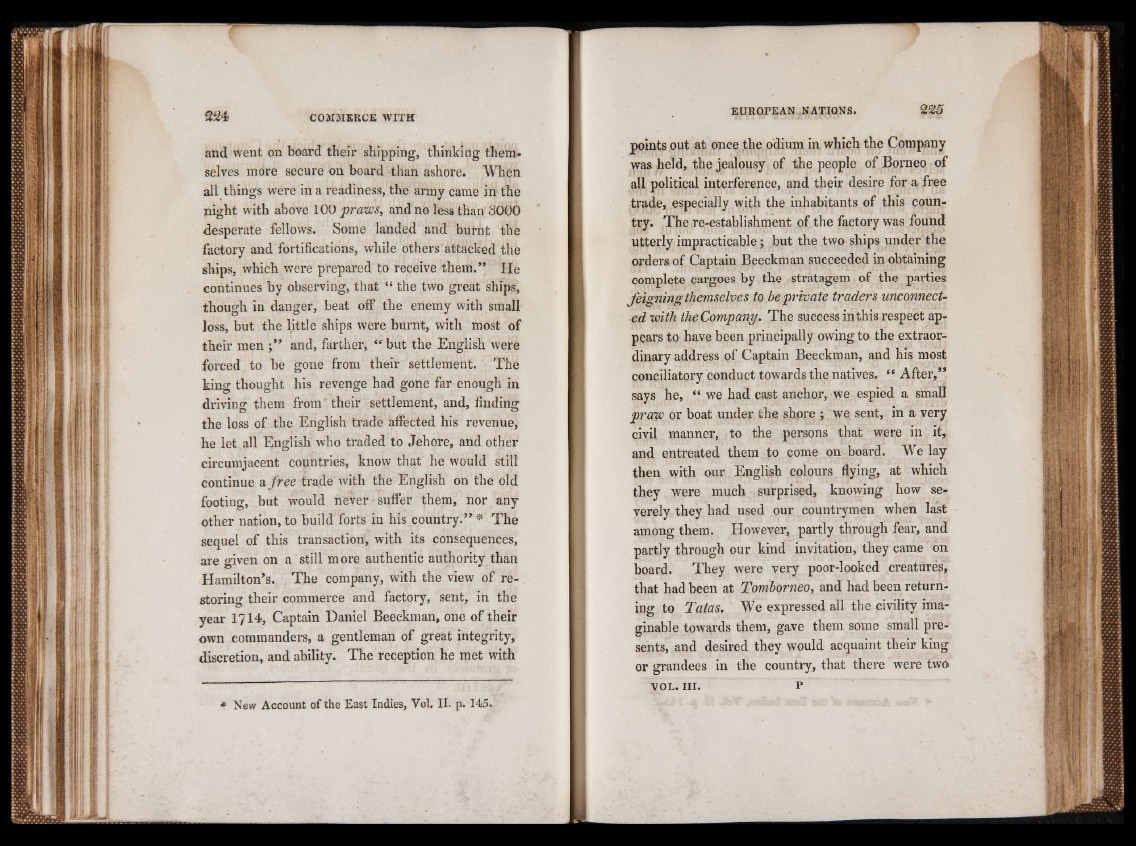
and went on board their shipping, thinking themselves
more secure on board than ashore. When
all things were in a readiness, the army came in the
night with above 100 prams, and no less than 3000
desperate fellows. Some landed and burnt the
factory and fortifications, while others attacked the
ships, which were prepared to receive them.” He
continues by observing, that “ the two great ships,
though in danger, beat off the enemy with small
loss, but the little ships were burnt, with most of
their men and, farther, “ but the English were
forced to be gone from their settlement. The
king thought his revenge had gone far enough in
driving them from ’ their settlement, and, finding
the loss of the English trade affected his revenue,
he let all English who traded to Jehore, and other
circumjacent countries, know that he would still
continue a free trade with the English on the old
footing, but would never suffer them, nor any
other nation, to build forts in his country.” * The
sequel of this transaction, with its consequences,
are given on a still more authentic authority than
Hamilton’s. The company, with the view of restoring
their commerce and factory, sent, in the
year 1714, Captain Daniel Beeckman, one of their
own commanders, a gentleman of great integrity,
discretion, and ability. The reception he met with
* New Account of the East Indies, Vol. II. p. 145.
EUROPEAN NATIONS. 225
points out at once the odium in which the Company
was held, the jealousy of the people of Borneo of
all political interference, and their desire for a free
trade, especially with the inhabitants of this country.
The re-establishment of the factory was found
utterly impracticable; but the two ships under the
orders of Captain Beeckman succeeded in obtaining
complete cargoes by the stratagem of the parties
feigning themselves to be private traders unconnected
with the Company. The success in this respect appears
to have been principally owing to the extraordinary
address of Captain Beeckman, and his most
conciliatory conduct towards the natives. “ After,”
says he, “ we had cast anchor, we espied a small
prap or boat under the shpre ; we sent, in a very
ciyil manner, to the persons that were in it,
and entreated them to come on board. We lay-
then with our English colours flying, at which
they were much surprised, knowing how severely
they had used our countrymen when last
among them. However, partly through fear, and
partly through our kind invitation, they came on
board. They were very poor-looked creatures,
that had been at Tomborneo, and had been returning
to Tatas. We expressed all the civility imaginable
towards them, gave them some small presents,
and desired they would acquaint their king
or grandees in the country, that there were two
VOL. III. P